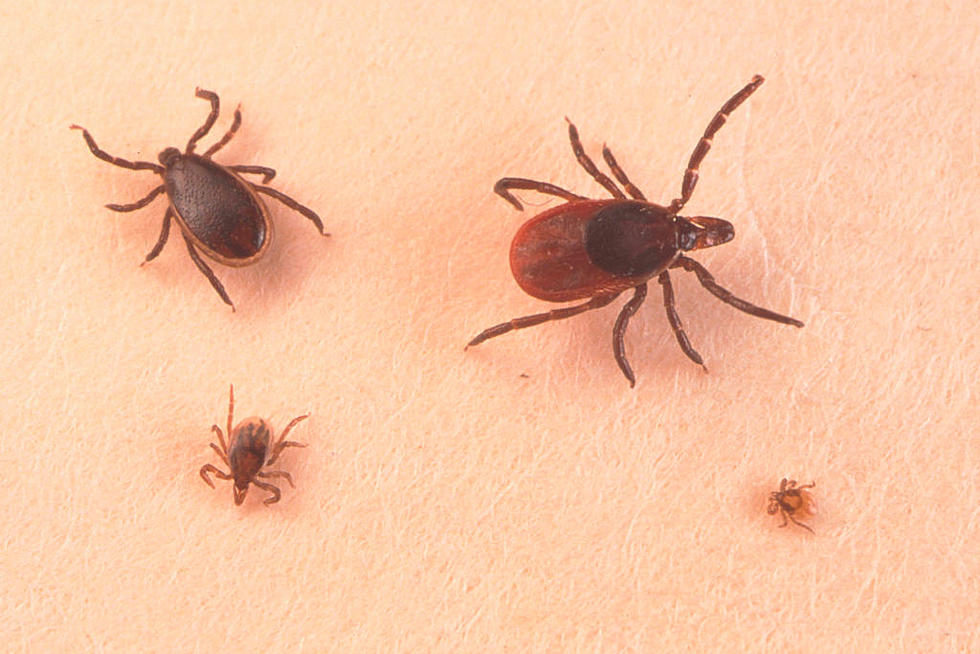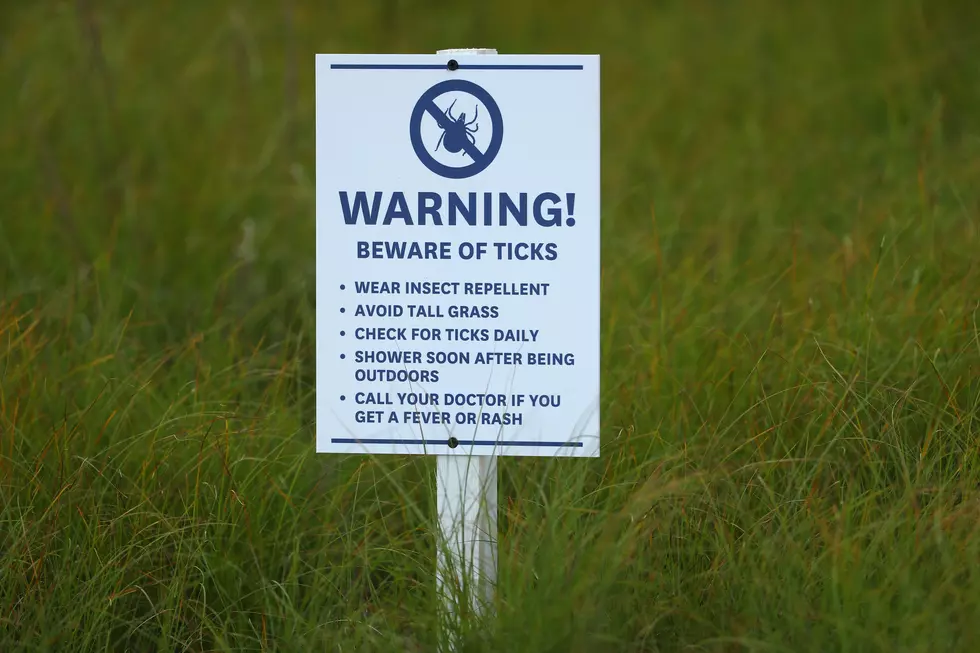
Massachusetts Winter Tick Threat May Include New Migrants
The summer is over, so it's safe to trek through the woods with the dogs without fear of ticks, right?
Wrong.
The Massachusetts Department of Public Health's Bureau of Infectious Disease and Laboratory Sciences says, "Tick activity and tick-borne diseases like Lyme disease, anaplasmosis, babesiosis, Borrelia miyamotoi, and Powasann virus, occur year-round in Massachusetts."
DPH says tick activity is "weather-dependent," with peak seasons from March-April through August and October-November. The majority of cases of tick-borne disease occur from June through August.
DPH says, "Tick-borne diseases are most frequently diagnosed in children and older adults." While not all ticks carry disease, folks should prevent tick bites when possible.
Mass.gov has information on tick bite prevention and how to remove a tick.

Sea of Green Lawn Care LLC says, "These pesky parasites can, unfortunately, stick around throughout the colder months in Massachusetts." The site says, "Unlike many other insects that hibernate, overwinter as eggs, or move to warmer areas during the winter months, ticks can stay active as long as temperatures are not too cold."
Ticks will generally curl up and hide in leaves in a state of semi-hibernation but may, with the slightest warm-up, become active again.
Fox News says an outbreak of Rocky Mountain spotted fever reported in Southern California has resulted in three deaths. The cable network's medical contributor, Dr. Marc Siegel, clinical professor of medicine at NYU Langone Medical Center, is worried.
"What's most interesting about these cases is that they are occurring in Mexico, and I do worry that with our porous borders, these ticks carrying disease could cross [into the U.S.] with migrants," he said.
LOOK: 11 tick-borne illnesses and what to watch out for during your outdoor adventures
Gallery Credit: Martha Sandoval
LOOK: Here are the pets banned in each state
Gallery Credit: Elena Kadvany
More From WFHN-FM/FUN 107









